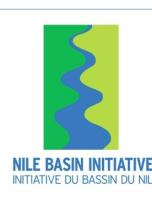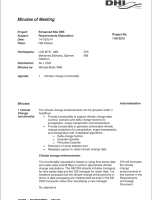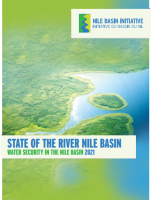Abstract
This Report describes a new methodology for climate change proofing ENSAP projects by asking specific questions to each project: How does the project relate to the processes driving global climate change? What are the climate change impacts most relevant to this project? What climate change impacts are the project most vulnerable to? How can the issue of climate change be approached within the context of this specific ENSAP project? How can we use the strategy proposed in the “Approach Paper” to analyze each project? What elements of the proposed strategy are most relevant to each ENSAP project? How can we rank these different elements based on their relevance to the project and its vulnerabilities? Using this methodology, new climate change components are proposed to be incorporated into each project (or suggested as follow-up actions), as project activities, special studies, or “Climate Smart” concepts. The report also proposes 6 special studies, with the objective of climate change proofing of ENSAP projects, on (i) the impact of climate change on irrigation water requirements in the EN basin (ii) capacity building, from short-term flood forecasting to regional climate modeling; (iii) the impact of watershed management activities on carbon fluxes; (iv) detailed measurement of likely scenarios of future trends in rainfall and river flow in the Nile basin; (v) impact of a changing regional climate system on the water resources planning process relevant to the Joint Multipurpose Program 1; and (vi) the recent transformation of the energy markets in the three countries into one regional energy market and its impact on the process of identifying new clean energy sources for the region.


